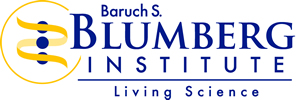 The Baruch S. Blumberg Institute recently added a group of nationally recognized scientists in its team in order to strengthen their efforts to find a cure for hepatitis B. With the new addition, the institute has almost tripled its research capacity and has become the greatest concentration of nonprofit scientists in the United States focused on both hepatitis B and liver cancer.
The Baruch S. Blumberg Institute recently added a group of nationally recognized scientists in its team in order to strengthen their efforts to find a cure for hepatitis B. With the new addition, the institute has almost tripled its research capacity and has become the greatest concentration of nonprofit scientists in the United States focused on both hepatitis B and liver cancer.
Timothy Block, Jinhong Chang, Ju Tao Guo and Ying-Hsiu Su are the four key scientists that joined the institute, which is part of the Hepatitis B Foundation, alongside 16 staff members and laboratory researchers. The investigators now form a first-class scientific team that will be completely focused on studying hepatitis B, with the main mission to conduct an aggressive plan to create novel therapies to treat the disease over the next three years.
“By bringing leading researchers in the field together at its headquarters, the Hepatitis B Foundation, through its research arm, the Baruch S. Blumberg Institute, is able to concentrate their joint efforts to finding new treatments and, ultimately, a cure,” said the chairman of the Foundation’s board, Joel Rosen. “In the twelve years that I have been a member of the foundation’s board of directors, I have never been more optimistic that a cure is within reach. It’s an exciting time for everyone involved.”
The studies are based on the latest findings conducted regarding both hepatitis B and liver cancer, such as the discovery of new screening methods to determine the effectiveness of drug therapies, as well as new therapeutic approaches, new blood biomarkers and promising investigational drugs that have already proven their effectiveness in animal studies, as announced by the institute in a press release.
“This is an incredibly exciting time in hepatitis B research, with the field poised to develop a cure,” stated one of the leading virologists in the country, Tom Shenk, who is also a professor at Princeton University and a member of the Foundation’s Board of Directors. “The Blumberg Institute is fortunate to have attracted Tim Block and his colleagues, positioning the nonprofit institute to maintain its world-class stature in hepatitis research.”
The Hepatitis B Foundation and the Blumberg Institute expect to be able to accelerate the treatment of hepatitis B with the new group of researchers, while they are also considering collaborating with private companies. The results from the institute’s work are much awaited in the medical community since they can have implications for patients all over the world.
“The years that we all have spent working towards a cure for hepatitis B have laid the groundwork for this final phase,” said researcher Timothy Block. “We are committing everything we have, every resource at our disposal, to developing the therapies that will improve the lives of the millions of people worldwide who live with the hepatitis B virus every day, as well as the risk of dying prematurely from its most fatal consequence, liver cancer.”
“The fact that Dr. Tim Block and other world-class scientists have chosen to join the Blumberg Institute in its drive to find a cure for hepatitis B speaks volumes about the Institute’s cutting-edge science and potential to impact global health,” added the former president and CEO of the multinational pharmaceutical company Novartis U.S., Wayne Yetter, who is also a member of the Hepatitis B Foundation’s Board of Directors.
The Baruch S. Blumberg Institute has also recently established a partnership with OnCore Biopharma, Inc., a company focused on the development and commercialization of oral medication for the treatment of chronic hepatitis B virus (HBV) infection. The agreement between Oncore and Blumberg will be based on a research plan in the fields of HBV and liver cancer. Oncore will provide funding for the realization of the projects, which may include the identification of new HBV targets, but also the identification and development of a new therapeutic compound series, new assay development, and other technologies for hepatitis B and liver cancer.

